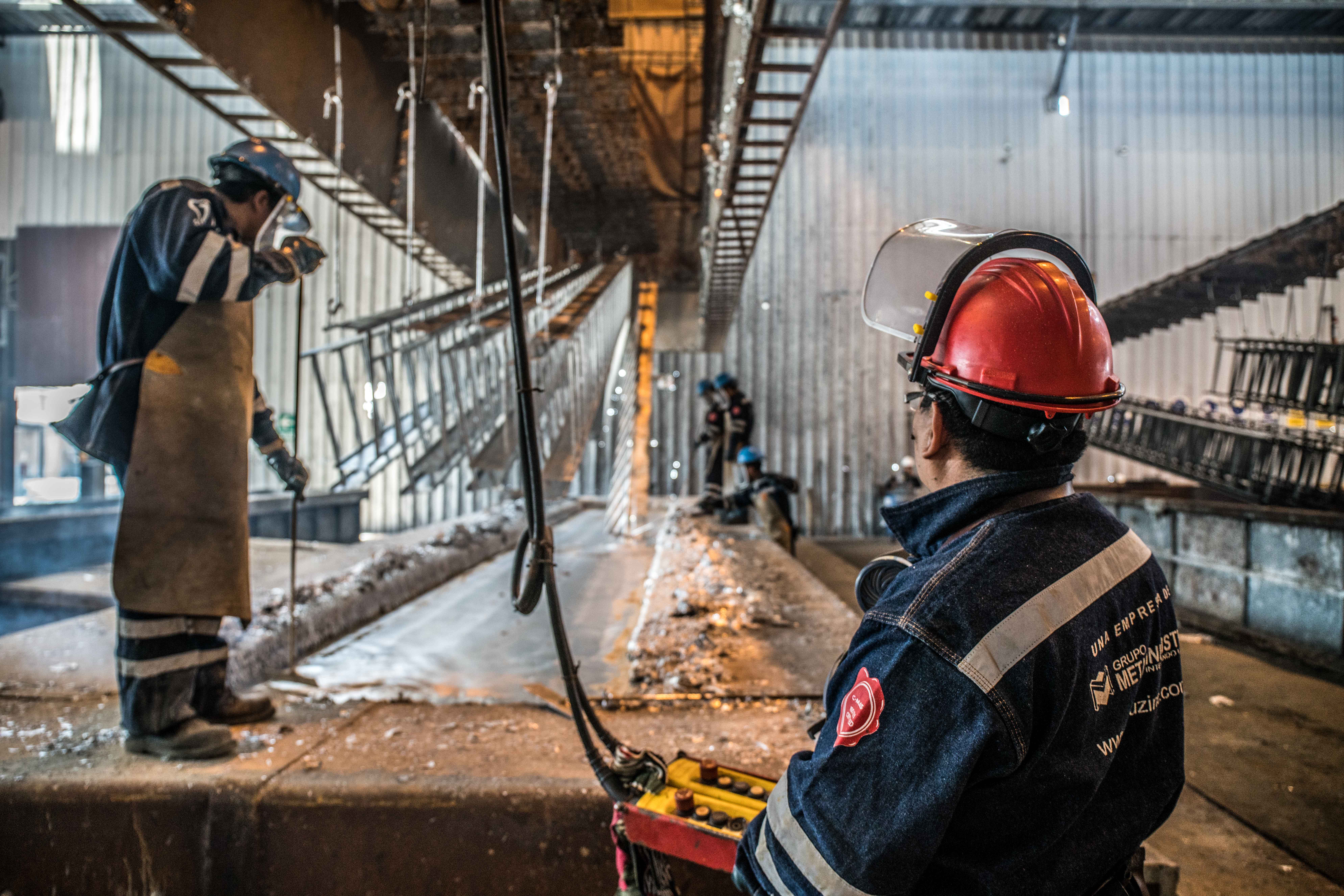Helping drive modern, competitive and inclusive industry in Peru
Charles ARTHUR

Since December 2015, UNIDO and the Ministry of Production of Peru have been working on a multi-disciplinary technical cooperation programme to drive modern, competitive and inclusive industry in Peru and support the national development agenda. This initiative – the Programme for Country Partnership (PCP) for Peru – seeks to generate investment, develop technical assistance portfolios and leverage funds for inclusive and sustainable industrial development in Peru.
Petra Schwager, the PCP for Peru team leader at the United Nations Industrial Development Organization (UNIDO), explains that the PCP approach is all about new ways to forge effective partnerships. It focuses on prioritized sectors and areas with high potential for economic growth, and it brings together all relevant actors in the country in a multi-stakeholder partnership so that the contribution of each partner can be coordinated and optimized.
Joining hands
“To enhance the impact and upscaling of the programme, we need strong leadership from the government and partners. Working with financial institutions and the private sector is key because investment is needed, but it is more than that. It is about joining hands, bundling technical and financial resources, and building on each other’s initiatives. For example, for our sustainable industrial zones project, we will work with the Japan International Cooperation Agency (JICA) that has projects in the same area of Callao, a credit line for small and medium enterprises, and is working with companies on energy efficiency.”
Schwager says the same approach is used in-house too. “At UNIDO, we see many complementarities in the projects and we see that there is much value added if we work together. We have excellent know-how here, but we weren’t always bundling it. Now, with the PCP approach, we take advantage of what other colleagues can contribute. So, a PCP consists of projects and whenever we do a project we share it with all members of the PCP team for their comments to see how the projects can complement each other and contribute to the overall objective of the PCP.”
She refers to one example when four PCP team members from different departments came together to review Peru’s national network of innovation and technology centres (CITEs). “We pooled the specific technical expertise of each team member together and produced a cohesive report. This is how it works internally, and this of course also reflects what we do in the country by working with different ministers – the Ministers of Production, Commerce, Economy and Finance, Energy, Environment, and so on. And the review helped to shape an Inter-American Development Bank credit line of US$23m and laid the foundation for improving the service portfolio and performance of CITEs.”
Advising the government
Schwager continues, “UNIDO’s role is a technical advisory role. Yes, an important element of the PCP is leveraging new investment and support but there is also a big part in advising the government in molding their existing ‘policy’ instruments and investment programmes in a more efficient manner, aligned with the Sustainable Development Goals.”
The PCP Peru has three phases: identification, inception and implementation, and Schwager says that the third phase is now about to begin with five priority projects. Additional projects will follow in the coming months. “We are working with the authorities on a new industrial development policy, which will also make it possible for us to measure our impact.”
“Second, we will work with them on a national strategy for sustainable industrial parks that brings together social, economic and environmental dimensions. Besides industrial parks, Peru needs additional instruments to support SMEs in the different regions. I think UNIDO is well-positioned to give advice on clustering, on networking and on value chain development. So, UNIDO will come into play with other instruments.”
“The third is a sustainable industrial zone project funded by the Global Environment Facility. When developing a national sustainable industrial parks strategy, you need to look at new parks and existing zones. So, we have selected one of the biggest, most polluted industrial zones – at Callao, which is the chief seaport of Peru. We will make this area more sustainable by delivering training for the local government, improving the performance of industries (working at company level) and developing policy guidelines for replication in other parts of the country.”
“The fourth one is on integrated value chain development in Peru’s aquaculture sector, and the fifth project is improving quality in the coffee and cocoa sectors. In both projects, we will work very closely with the country’s CITEs, because these are key instruments for decentralized innovation.
Cross-cutting
Schwager underlines that the PCP also provides support to the government on several cross-cutting areas. For example, the project, “Women’s economic empowerment in green industry”, combines gender and environmental elements.
For Schwager, the partnership approach is key. “We work so closely with the government because the PCP can only work if the government works with you. It has to be a team. Now, five or six people from the government will come to Vienna for one week to work with us on policy development. This makes me happy because this is the commitment that is needed.”
- PETRA SCHWAGER is an Industrial Development Officer at the United Nations Industrial Development Organization. She joined UNIDO in 1994 as Junior Professional Officer.
This article was originally published in UNIDO's quarterly discussion magazine, Making It.